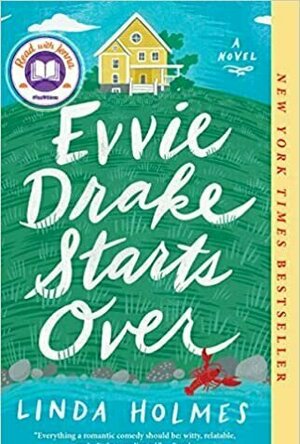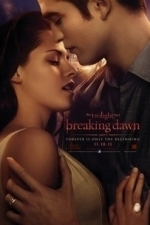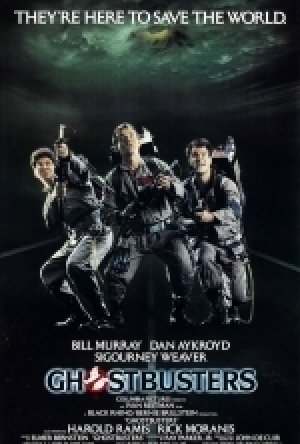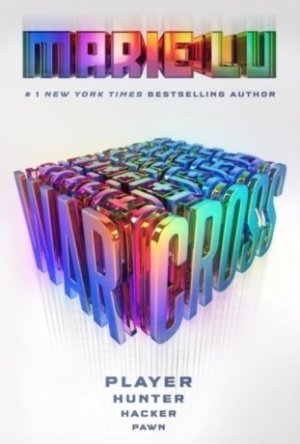Search
Search results
Gail (4 KP) rated The Game (Carolina Connections, #4) in Books
Jun 4, 2018
The Game by Sylvie Stewart
Four Stars
I liked this story a lot. Gavin was too cute with his boyish charm and looks. I thought it was really funny that he was the youngest in his group and that they called him Junior. I admired the way that he putted himself up after drowning in self pity for two years. He was doing everything he could to better himself. He wasn’t big headed or egotistical. He was so patient through it all and I know I wouldn’t have done the same. I would’ve blew up at Emmy for the things she did. Emmy was so hard working and hard so much strength. I didn’t understand how her dad couldn’t be proud of her. It sucks because even in 2017 we still have people like Emmy's dad. They only see people in status and careers. They don’t see that these people work just as hard and most times harder then themselves. Judging them by their background not by their actions. It’s a very sad thing when a daughter can’t be proud to take her man in front of her dad and receive his approval. I did think Emmy tried to hard to please her father. She put so much in getting his smiles and approval that she lacked a life and knowledge of relationships. Through some of the earlier chapters I didn’t really like her. She was so indecisive not really knowing what she wanted but having Gavin along anyway. Je was very mature in handling her doubts and rejections. The author did a really good job on this story and I cant wait to get the next one.
Four Stars
I liked this story a lot. Gavin was too cute with his boyish charm and looks. I thought it was really funny that he was the youngest in his group and that they called him Junior. I admired the way that he putted himself up after drowning in self pity for two years. He was doing everything he could to better himself. He wasn’t big headed or egotistical. He was so patient through it all and I know I wouldn’t have done the same. I would’ve blew up at Emmy for the things she did. Emmy was so hard working and hard so much strength. I didn’t understand how her dad couldn’t be proud of her. It sucks because even in 2017 we still have people like Emmy's dad. They only see people in status and careers. They don’t see that these people work just as hard and most times harder then themselves. Judging them by their background not by their actions. It’s a very sad thing when a daughter can’t be proud to take her man in front of her dad and receive his approval. I did think Emmy tried to hard to please her father. She put so much in getting his smiles and approval that she lacked a life and knowledge of relationships. Through some of the earlier chapters I didn’t really like her. She was so indecisive not really knowing what she wanted but having Gavin along anyway. Je was very mature in handling her doubts and rejections. The author did a really good job on this story and I cant wait to get the next one.
Movie Metropolis (309 KP) rated The Twilight Saga: Breaking Dawn Part 1 (2011) in Movies
Jun 11, 2019
Finally, a Twilight film that doesn’t have men in the audience going green with envy as they stare at Taylor Lautner’s washboard abs and finally, a Twilight film that doesn’t actually stink.
Of course, those of you familiar with my reviews know that I’m not fond of the Twilight Saga in the slightest, but here I’m prepared to eat my words as newcomer Bill Condon (Dreamgirls) directs a surprisingly enjoyable outing. Unfortunately, it all comes a bit late as this is the penultimate film in Stephanie Meyer’s book series.
Sadly, the Twilight films have never had the critical success of their Harry Potter cousins, probably due to their wooden acting, dire scripting and disappointing special effects, but here, Breaking Dawn Part 1 manages to be at least as good as the first two films of its wizarding counterpart.
The similarities between the two series’ don’t stop there. The decision to split the final book in the Twilight series was probably done because of the success Harry Potter had by splitting the final book into two films.
Here, Bill Condon manages to inject some life into the franchise with good acting, good special effects and finally, a good storyline. Edward (Robert Pattinson) and Bella (Kristen Stewart) have finally decided to tie the knot. Naturally, Jacob (Taylor Lautner) is less than pleased with this announcement and decides to run away in a fit of rage. Will he be back for the wedding? GASP!
Alas, he makes it and just before Edward whisks Bella on their honeymoon, some pleasantries are exchanged between the bride and the wolf. So, the honeymoon comes and Bella realises she’s pregnant; oh dear. The film then follows her journey to becoming a mother and the growing beast inside her. Thankfully, the point where the film is split doesn’t jar like it did in Harry Potter and the Deathly Hallows and seems to follow a natural ending.
The special effects have also upped their game for the latest instalment as the (still blatantly obvious) CGI werewolves look much more realistic. Also, the acting has improved leaps and bounds with Kristen Stewart being a real highlight. The realisation that motherhood could kill her is fantastically portrayed by Stewart, though the special effects making her look frail probably helped here.
Taylor Lautner is the best out of the male leads and does the role some justice, whilst Robert Pattinson is mediocre as Edward.
There’s still a problem with the films pacing however. It seems that events that would take 10 minutes worth of screen time in other films have to take 30 in the Twilight saga; it’s a major annoyance as it interrupts the flow of the film and the constant close ups of the characters’ faces grate after a while.
Also, Condon has clearly not directed many films that require action scenes. A major fight with the werewolves and the Cullen’s should have been a real highlight, but it’s a sloppily directed sequence with bodies mashing together. You’re unsure as to who is who, a problem which blights the Transformers film series.
Thankfully there are numerous highlights, the shots of Rio are breath-taking and Bella giving birth is truly horrific, you can’t take your eyes of the screen for a second. Also worth a mention is a part where the werewolves are running through the forest and end up in a logging plant. It’s a fabulous sequence that really makes you grip your seat.
The Twlight Saga: Breaking Dawn Part 1 is a good film. It finally makes use of the promising source material it has been blessed with and it’s pleasing to see that a good sense of direction is all it takes to turn around the fortunes of a film series. It’s far from perfect, with sloppy action scenes and terrible pacing, but finally, I left the cinema with a sense of happiness – I’m actually looking forward to part two. (I can’t believe I just said that.)
https://moviemetropolis.net/2011/11/27/the-twilight-saga-breaking-dawn-part-1-2011/
Of course, those of you familiar with my reviews know that I’m not fond of the Twilight Saga in the slightest, but here I’m prepared to eat my words as newcomer Bill Condon (Dreamgirls) directs a surprisingly enjoyable outing. Unfortunately, it all comes a bit late as this is the penultimate film in Stephanie Meyer’s book series.
Sadly, the Twilight films have never had the critical success of their Harry Potter cousins, probably due to their wooden acting, dire scripting and disappointing special effects, but here, Breaking Dawn Part 1 manages to be at least as good as the first two films of its wizarding counterpart.
The similarities between the two series’ don’t stop there. The decision to split the final book in the Twilight series was probably done because of the success Harry Potter had by splitting the final book into two films.
Here, Bill Condon manages to inject some life into the franchise with good acting, good special effects and finally, a good storyline. Edward (Robert Pattinson) and Bella (Kristen Stewart) have finally decided to tie the knot. Naturally, Jacob (Taylor Lautner) is less than pleased with this announcement and decides to run away in a fit of rage. Will he be back for the wedding? GASP!
Alas, he makes it and just before Edward whisks Bella on their honeymoon, some pleasantries are exchanged between the bride and the wolf. So, the honeymoon comes and Bella realises she’s pregnant; oh dear. The film then follows her journey to becoming a mother and the growing beast inside her. Thankfully, the point where the film is split doesn’t jar like it did in Harry Potter and the Deathly Hallows and seems to follow a natural ending.
The special effects have also upped their game for the latest instalment as the (still blatantly obvious) CGI werewolves look much more realistic. Also, the acting has improved leaps and bounds with Kristen Stewart being a real highlight. The realisation that motherhood could kill her is fantastically portrayed by Stewart, though the special effects making her look frail probably helped here.
Taylor Lautner is the best out of the male leads and does the role some justice, whilst Robert Pattinson is mediocre as Edward.
There’s still a problem with the films pacing however. It seems that events that would take 10 minutes worth of screen time in other films have to take 30 in the Twilight saga; it’s a major annoyance as it interrupts the flow of the film and the constant close ups of the characters’ faces grate after a while.
Also, Condon has clearly not directed many films that require action scenes. A major fight with the werewolves and the Cullen’s should have been a real highlight, but it’s a sloppily directed sequence with bodies mashing together. You’re unsure as to who is who, a problem which blights the Transformers film series.
Thankfully there are numerous highlights, the shots of Rio are breath-taking and Bella giving birth is truly horrific, you can’t take your eyes of the screen for a second. Also worth a mention is a part where the werewolves are running through the forest and end up in a logging plant. It’s a fabulous sequence that really makes you grip your seat.
The Twlight Saga: Breaking Dawn Part 1 is a good film. It finally makes use of the promising source material it has been blessed with and it’s pleasing to see that a good sense of direction is all it takes to turn around the fortunes of a film series. It’s far from perfect, with sloppy action scenes and terrible pacing, but finally, I left the cinema with a sense of happiness – I’m actually looking forward to part two. (I can’t believe I just said that.)
https://moviemetropolis.net/2011/11/27/the-twilight-saga-breaking-dawn-part-1-2011/

Little Princess Coloring Book!
Education and Games
App
~~> An enchanting, sparkling and interactive experience fit for Royalty ~~> 150+ beautiful...

My Talking Angela
Games and Entertainment
App
Explore the glamorous world of Talking Angela. Adopt Angela and make her your very own superstar....
BankofMarquis (1832 KP) rated Ghostbusters (1984) in Movies
Oct 30, 2020
A Comedy Classic
My daughter was flipping channels the other day and ran across the great 1984 Supernatural comedy GHOSTBUSTERS and stopped to watch for awhile. As happens with her generation, she eventually got more interested in her phone and friends and wandered away. Me? I was drawn back into this film so much so that I went downstairs, grabbed the DVD (yes, kids, I still own DVDs) and popped the film into my Home Theater System to give it a proper viewing.
I gotta say...I was so inspired by how terrific this film is that I changed course and devoted the 23rd BankofMarquis Movies podcast to this film.
Starring the comedic trio of Bill Murray, Dan Aykroyd and Harold Ramis and featuring Sigourney Weaver, Ernie Hudson and the great Rick Moranis, GHOSTBUSTERS tells the tale of supernatural exterminators called to save NYC when paranormal experiences start escalating in the Big Apple.
But it's not the destination, it's the journey that makes this film so much fun. Told in a standard 2 Act arc - Origin Story followed by a 2nd Act of battling the "Big Bad" - it is the comedic timing and chemistry of the 3 leads that makes this film work (aided by a wonderful "straight man" turn by Sigourney Weaver and a brilliant "side-kick" comedic turn by Rick Moranis).
Credit for keeping this film together, moving and more than just a "series of jokes" is Director Ivan Reitman (STRIPES, MEATBALLS), he had the comedic "cred" to appeal to these 3 big time comedians, but has a Producers sense of efficiency and a Director's command of subject and tone.
This film was Aykroyd's idea and he shines as, Ray Stantz, the heart of the Ghostbusters. He truly believes in what he is doing and has a child-like sense of wonder in his actions. Harold Ramis (more noted as a Writer and a Director) was brought in to co-write Aykroyd's idea, steering it more towards Reitman's idea of humor and writing in a way that would make Murray shine - but he is also wonderfully deadpan as techno-geek Egon Spengler. The serious nerd who never smiles.
But...make no mistake...this film revolves around the antics of con-man Dr. Peter Venkman, a scientist who doesn't believe any of this, but is willing to go along as long as it achieves his goals. And...what are his goals? Well...womanizing and getting through life with as little work as possible. Murray is at the top of his comedic game in this film and most of his scenes are improvised - but, to be fair to the writers, Murrya's riffs are what Ramos and Aykroyd put down on paper. He is the mouth of this film and his energy drives this movie throughout.
Sigourney Weaver proved that she could do more than Sci-Fi action (like ALIEN) when she plays the straightman to these 3 wild-men. She stated that she was channeling her inner Margaret Dumont (straightman to the Marx Brothers) and she does an admirable, charming job in a role that could have easily come off as annoying.
Rick Moranis, of course, almost steals the film as the nerdy accountant neighbor of Weaver's. His improvised riff as he goes around the room at his own party is the stuff of comedic gold.
Ernie Hudson comes along as the 4th Ghostbuster. Many folks thinks that he is the "unnecessary" GhostBuster, but I would argue that he comes along at a time (right after the origin story is complete) to be the audience surrogate - to ask the questions that need to be asked and to get necessary expository passages out.
And...finallly...there is William Atherton as EPA Agent Walter Peck. I kind of feel sorry for this actor, for he had a decent career going up to Ghostbusters, but he was so good as the annoying, buzzkill "anti-Ghostbuster" that serves as the foil for their antics, that he wasn't really accepted in any other kind of role the rest of his career (he would play a version of this character in the first 2 DIE HARD films).
The special effects hold up, just enough to make them passable. Keep in mind that this film was made over 35 years ago and the effects were state of the art back in the day, so I would recommend you cut that some slack.
And...if you do...you'll be rewarded with a rollicking fun time at the movies.
Letter Grade: A
9 stars (out of 10) and you can that to the Bank(OfMarquis)
I gotta say...I was so inspired by how terrific this film is that I changed course and devoted the 23rd BankofMarquis Movies podcast to this film.
Starring the comedic trio of Bill Murray, Dan Aykroyd and Harold Ramis and featuring Sigourney Weaver, Ernie Hudson and the great Rick Moranis, GHOSTBUSTERS tells the tale of supernatural exterminators called to save NYC when paranormal experiences start escalating in the Big Apple.
But it's not the destination, it's the journey that makes this film so much fun. Told in a standard 2 Act arc - Origin Story followed by a 2nd Act of battling the "Big Bad" - it is the comedic timing and chemistry of the 3 leads that makes this film work (aided by a wonderful "straight man" turn by Sigourney Weaver and a brilliant "side-kick" comedic turn by Rick Moranis).
Credit for keeping this film together, moving and more than just a "series of jokes" is Director Ivan Reitman (STRIPES, MEATBALLS), he had the comedic "cred" to appeal to these 3 big time comedians, but has a Producers sense of efficiency and a Director's command of subject and tone.
This film was Aykroyd's idea and he shines as, Ray Stantz, the heart of the Ghostbusters. He truly believes in what he is doing and has a child-like sense of wonder in his actions. Harold Ramis (more noted as a Writer and a Director) was brought in to co-write Aykroyd's idea, steering it more towards Reitman's idea of humor and writing in a way that would make Murray shine - but he is also wonderfully deadpan as techno-geek Egon Spengler. The serious nerd who never smiles.
But...make no mistake...this film revolves around the antics of con-man Dr. Peter Venkman, a scientist who doesn't believe any of this, but is willing to go along as long as it achieves his goals. And...what are his goals? Well...womanizing and getting through life with as little work as possible. Murray is at the top of his comedic game in this film and most of his scenes are improvised - but, to be fair to the writers, Murrya's riffs are what Ramos and Aykroyd put down on paper. He is the mouth of this film and his energy drives this movie throughout.
Sigourney Weaver proved that she could do more than Sci-Fi action (like ALIEN) when she plays the straightman to these 3 wild-men. She stated that she was channeling her inner Margaret Dumont (straightman to the Marx Brothers) and she does an admirable, charming job in a role that could have easily come off as annoying.
Rick Moranis, of course, almost steals the film as the nerdy accountant neighbor of Weaver's. His improvised riff as he goes around the room at his own party is the stuff of comedic gold.
Ernie Hudson comes along as the 4th Ghostbuster. Many folks thinks that he is the "unnecessary" GhostBuster, but I would argue that he comes along at a time (right after the origin story is complete) to be the audience surrogate - to ask the questions that need to be asked and to get necessary expository passages out.
And...finallly...there is William Atherton as EPA Agent Walter Peck. I kind of feel sorry for this actor, for he had a decent career going up to Ghostbusters, but he was so good as the annoying, buzzkill "anti-Ghostbuster" that serves as the foil for their antics, that he wasn't really accepted in any other kind of role the rest of his career (he would play a version of this character in the first 2 DIE HARD films).
The special effects hold up, just enough to make them passable. Keep in mind that this film was made over 35 years ago and the effects were state of the art back in the day, so I would recommend you cut that some slack.
And...if you do...you'll be rewarded with a rollicking fun time at the movies.
Letter Grade: A
9 stars (out of 10) and you can that to the Bank(OfMarquis)
Hazel (1853 KP) rated Extraordinary Means in Books
Dec 17, 2018
<i>This ARC was provided by the publisher via NetGalley in exchange for an honest review
Extraordinary Means</i> is a coming of age novel by Robyn Schneider that promises to live up to the expectations of John Green and Stephen Chbosky fans. Set in the near future, Lane Rosen has spent his seventeen years studying and making sure he is always achieving his best at school. With high hopes of getting into Stanford, he is distraught when he is sent to Latham House, a sanatorium in the Santa Cruz Mountains, after contracting tuberculosis.
Although in today’s society tuberculosis is curable, Schneider has invented a total drug resistant TB, which is highly contagious, therefore needs to be contained. Lane finds himself in the middle of nowhere surrounded by other teenagers with the incurable disease. Here he meets Sadie Bennett with whom, after a shaky start, he develops a close relationship.
Ironically, whilst suffering with an illness that could kill him, Lane learns there is a lot more to life than school. With his new friends: Sadie, Nick, Marina and Charlie; Lane begins to become more adventurous and starts to relax and have fun whilst they wait for scientists to come up with a cure. The only trouble with this waiting game is that the odds of some of them not living long enough to see this cure is fairly high.
Narrated by both Lane and Sadie, <i>Extraordinary Means</i> is a love story with a heart-breaking ending. The readers really feel for the teens as they are separated from their family, and forgotten about by their friends. Unlike other potentially terminal illness, they cannot have support from their loved ones because of the risk of spreading the disease.
There is an underlying sadness to the novel, as the reader knows that no matter how much fun the characters have and no matter what their hopes and dreams, chances are something dreadful could happen. With this in mind, the story becomes much more powerful and moving as Sadie, Lane and friends determine to keep on going and enjoy their lives on a day-to-day basis.
Schneider is an excellent writer who has created a contemporary romance with a unique setting. The imagination involved with the tuberculosis could almost describe the novel as dystopian minus the science fiction genre. <i>Extraordinary Means</i> is the perfect novel for young adult fans, but warning: it could break your heart!
Extraordinary Means</i> is a coming of age novel by Robyn Schneider that promises to live up to the expectations of John Green and Stephen Chbosky fans. Set in the near future, Lane Rosen has spent his seventeen years studying and making sure he is always achieving his best at school. With high hopes of getting into Stanford, he is distraught when he is sent to Latham House, a sanatorium in the Santa Cruz Mountains, after contracting tuberculosis.
Although in today’s society tuberculosis is curable, Schneider has invented a total drug resistant TB, which is highly contagious, therefore needs to be contained. Lane finds himself in the middle of nowhere surrounded by other teenagers with the incurable disease. Here he meets Sadie Bennett with whom, after a shaky start, he develops a close relationship.
Ironically, whilst suffering with an illness that could kill him, Lane learns there is a lot more to life than school. With his new friends: Sadie, Nick, Marina and Charlie; Lane begins to become more adventurous and starts to relax and have fun whilst they wait for scientists to come up with a cure. The only trouble with this waiting game is that the odds of some of them not living long enough to see this cure is fairly high.
Narrated by both Lane and Sadie, <i>Extraordinary Means</i> is a love story with a heart-breaking ending. The readers really feel for the teens as they are separated from their family, and forgotten about by their friends. Unlike other potentially terminal illness, they cannot have support from their loved ones because of the risk of spreading the disease.
There is an underlying sadness to the novel, as the reader knows that no matter how much fun the characters have and no matter what their hopes and dreams, chances are something dreadful could happen. With this in mind, the story becomes much more powerful and moving as Sadie, Lane and friends determine to keep on going and enjoy their lives on a day-to-day basis.
Schneider is an excellent writer who has created a contemporary romance with a unique setting. The imagination involved with the tuberculosis could almost describe the novel as dystopian minus the science fiction genre. <i>Extraordinary Means</i> is the perfect novel for young adult fans, but warning: it could break your heart!

Evvie Drake Starts Over
Book
NEW YORK TIMES BESTSELLER - #ReadWithJenna Book Club Pick as Featured on Today - "Everything a...
Character development (2 more)
Background
Story and plot = top notch
Amazing and will leave you on the edge of your seat!
As many of you know, I've struggled at getting into audio books but I think I've finally started to come around to the idea of them. I was given two free months of Scribd to try out and this is the second audio book that I've listened too.
At first, I wasn't too big of a fan of the narrator. She just sounded like she didn't give any care in the world and to be honest, her voice was very high pitched and rather annoying. Well, once we got into a little bit deeper into the story, the narrator actually grew on me. Don't judge a book by it's cover, I know I know. I'm rather bad at that haha.
“You have to learn to look at the whole of something, not just the parts.”
One thing that I rather liked about Warcross was that it delved into depression and loss a tad bit. Authors that can work that angle along with including a mass amount of diversity into their stories really are amazing human beings.
I absolutely love reading YA that includes diversity such as different ethnicity and LGBTQ+. Warcross has it both, and even has the main character, Emika, as a POC. This really brought the novel together and created this colorful novel that left me on the edge of my seat.
“It is hard to describe loss to someone who has never experienced it, impossible to explain all the ways it changes you. But for those who have, not a single word is needed.”
Warcross begins by following Emika in her journey of catching someone who has been illegally gambling within the game Warcross. She works as a bounty hunter and is rather good at her job. But, the main problem that she has is there are so many bounty hunters out there, so jobs are not quite an easy thing to get. This doesn't help Emika's debt problem at all. She's on the verge of losing her apartment and being put on the side of the street.
Opening ceremony night comes for the Warcross championships and Emika accidentally hacks into it. The creator of Warcross, Hideo Tanaka, ends up contacting her and hiring Emika as a bounty hunter to catch Zero. But what Emika doesn't realize is that she will be joining the championship as well to act as a spy. She is thrown in and immediately picked as a wildcard. But the journey she's about to take isn't what it's all put out to be.
Danger lurks behind every corner and people are not who they truly say they are. For Emika's in a life and death battle that could drastically change the future.
“Everyone has a different way of escaping the dark stillness of their mind.”
Characters:
Emika Chen - bounty hunter, hacker, the main character who has rainbow dyed hair and is an absolute rockin' badass.
Hideo Tanaka - billionaire creator of Warcross and eventually a love interest to Emika
Sasuke Tanaka - brother to Hideo, he was kidnapped at a young age and nobody knows if he's even alive.
Zero - the antagonist, or so we thought. Emika is trying to catch him.
Hammie, Roshan, DJ Ren, & Asher - members of the Phoenix Riders
Reasons why I rated it 5 stars:
1. The plot was top notch, absolutely amazing, and one of the best I've seen in awhile!
2. I will be rereading this once I get my hands on a physical copy. I may even re-listen to the audio book. It was just that good!
3. There is so much character and story development within the story and Marie Lu is a breath of fresh air. Not only did she include development, but there was background and representation!
4. Grammar and spelling isn't being counted against because I have no idea. It sounded good, but the narrator could have fixed stuff. Like I literally have no idea what the writing is like since I listened to Warcross on audio book.
5. The overall story left me wanting more of Warcross, more of Emika, more of what's in store for Emika. I just NEED MORE!
"Everything's science fiction until someone makes it science fact.”
At first, I wasn't too big of a fan of the narrator. She just sounded like she didn't give any care in the world and to be honest, her voice was very high pitched and rather annoying. Well, once we got into a little bit deeper into the story, the narrator actually grew on me. Don't judge a book by it's cover, I know I know. I'm rather bad at that haha.
“You have to learn to look at the whole of something, not just the parts.”
One thing that I rather liked about Warcross was that it delved into depression and loss a tad bit. Authors that can work that angle along with including a mass amount of diversity into their stories really are amazing human beings.
I absolutely love reading YA that includes diversity such as different ethnicity and LGBTQ+. Warcross has it both, and even has the main character, Emika, as a POC. This really brought the novel together and created this colorful novel that left me on the edge of my seat.
“It is hard to describe loss to someone who has never experienced it, impossible to explain all the ways it changes you. But for those who have, not a single word is needed.”
Warcross begins by following Emika in her journey of catching someone who has been illegally gambling within the game Warcross. She works as a bounty hunter and is rather good at her job. But, the main problem that she has is there are so many bounty hunters out there, so jobs are not quite an easy thing to get. This doesn't help Emika's debt problem at all. She's on the verge of losing her apartment and being put on the side of the street.
Opening ceremony night comes for the Warcross championships and Emika accidentally hacks into it. The creator of Warcross, Hideo Tanaka, ends up contacting her and hiring Emika as a bounty hunter to catch Zero. But what Emika doesn't realize is that she will be joining the championship as well to act as a spy. She is thrown in and immediately picked as a wildcard. But the journey she's about to take isn't what it's all put out to be.
Danger lurks behind every corner and people are not who they truly say they are. For Emika's in a life and death battle that could drastically change the future.
“Everyone has a different way of escaping the dark stillness of their mind.”
Characters:
Emika Chen - bounty hunter, hacker, the main character who has rainbow dyed hair and is an absolute rockin' badass.
Hideo Tanaka - billionaire creator of Warcross and eventually a love interest to Emika
Sasuke Tanaka - brother to Hideo, he was kidnapped at a young age and nobody knows if he's even alive.
Zero - the antagonist, or so we thought. Emika is trying to catch him.
Hammie, Roshan, DJ Ren, & Asher - members of the Phoenix Riders
Reasons why I rated it 5 stars:
1. The plot was top notch, absolutely amazing, and one of the best I've seen in awhile!
2. I will be rereading this once I get my hands on a physical copy. I may even re-listen to the audio book. It was just that good!
3. There is so much character and story development within the story and Marie Lu is a breath of fresh air. Not only did she include development, but there was background and representation!
4. Grammar and spelling isn't being counted against because I have no idea. It sounded good, but the narrator could have fixed stuff. Like I literally have no idea what the writing is like since I listened to Warcross on audio book.
5. The overall story left me wanting more of Warcross, more of Emika, more of what's in store for Emika. I just NEED MORE!
"Everything's science fiction until someone makes it science fact.”

Kids Song Collection - Playful Nursery Rhymes
Education and Games
App
~~~ 6 amazing animated, interactive children songs inside! ~~~ ~~~ Child friendly environment with...





